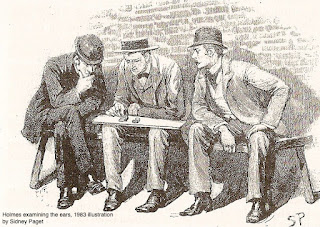“You seem a decent fellow,” answered the man in black. “I hate to die.”
Full title: The Princess Bride: S. Morgenstern's Classic Tale of True Love and High Adventure, The "Good Parts" Version Abridged by William Goldman
The full title is confusing. There is no such work by S. Morgenstern, in fact, there is no S. Morgenstern; he is fiction. The actual author, Goldman, pretends to have abridged an imaginary work by Morgenstern. The imaginary book is a scholarly, but mostly dull history of Florin. Goldman, still pretending, has fond memories of his father reading it to him, never realizing his father omitted most of the history and only read the exciting adventure passages. Goldman wants to continue the tradition and excitedly buys an edition for his own son, but is disappointed when the boy doesn’t like it. Goldman is incredulous, until he reads it himself, only to realize his false perception of the book. Consequently, Goldman writes the “Good Parts” version for his son and posterity. But again, this is all fiction.
It’s sort of metafiction, but not precisely. Perhaps experimental fiction? Indeed, after I wrote that, I found one description calling it “experimental metafiction” (feeling smug now). It is definitely a fantasy romance. Is a synopsis necessary? Isn’t everyone, in the Western Hemisphere at least, familiar with the film, and ergo familiar with the story?
Just in case: it is set in Florin, a fictional mid-19th Century European country. The hero, Westley is a simple farmhand in love with the farmer’s daughter Buttercup. Yes Buttercup! She is rather simple, insensitive, and blossoming into a legendary beauty. It is only when Buttercup notices another woman noticing Westley, that she truly notices Westley, and discovers she loves him. He sets off to make his fortune, with the promise of returning for Buttercup.
And then things get complicated. There are pirates, a giant, an evil prince, a six-fingered sadist, an evil genius, master sword makers, master swordsmen, a miracle man and R.O.U.S.es (rodents of unusual size). There are swordfights, contests of strength, battles of wits…to the death, kidnapping, torture, conspiracy revenge, and a deceptive dream sequence.
Goldman, in his role as the abridger of Morgenstern’s work, interjects commentary throughout: why he included this section, why he omitted another, two-sentence summaries of excised portions, etc. These fictional commentaries are often as entertaining as the story itself. Such as…
But from a narrative point of view, in 105 pages nothing happens. Except this: “What with one thing and another, three years passed.”
He includes many references to his own, genuine career as a writer. His works include several Academy Award winning screenplays. This mixture of truth and fiction can leave the reader confused as to what is genuine and what is fiction. I loved that, but it was indeed confusing. In one commentary, he refers to a reunion scene between Westley and Buttercup, which is conspicuous by its absence. Goldman says he wrote the reunion scene, but the publisher removed it since it was not part of Morgenstern’s original. The publisher agreed to provide it to any reader who requested it. Goldman even gives the address to write to, which at one time was the legitimate address of the publisher, though that publisher no longer exists. As I understand it, had you written when it was valid you would have received a letter from the author explaining the legal difficulties that prevent releasing the scene. This is again, just part of the experimental metafiction. Brilliant! (a copy of the letter is available HERE)
After the primary conclusion of the story, there are several excerpts for a sequel. These are, yet again, experimental metafiction, though it is unclear if Goldman intended to one day, actually write the sequel.
Still in his fictional abridger role, he concludes the whole thing with…
And you know what? I like these four. Buttercup and Westley, Fezzik and Inigo. They’ve all suffered, been punished, no silver spoons for this bunch. And I can just feel these terrible forces gathering against them. I just know it’s going to get worse for them than it’s ever been. Will they all live? Death of the Heart the subtitle says. Whose death? And even more important maybe, whose heart? Morgenstern has never given them an easy shot at happiness.
This time I sure hope he lets them get there…
This is the first time I’ve read The Princess Bride or Goldman, though I was familiar with the story for the film. Like the film, the book is a fantastic lark. I highly recommend both. If you are familiar with the film, read the book. If you have not seen the film, read the book and then watch the film. If you have read the book, but not watched the film…nah, I can’t believe such a person exists.
My rating: 4 of 5 stars
This novel satisfies the What’s in a Name 2022 challenge category of a title that is: A person’s name, and their description.
And, drumroll please, this is novel #200, of the 200 Greatest Novels of All Time. I will post a wrap-up of novels 101 – 200 in a few days.
Other excerpts:
…and as the boat drew close the Turk reached out a giant arm and then she was back in the safety of her murderers…
“Never go in against a Sicilian when death is on the line.”
Inigo looked down at him. The Count’s frozen face was petrified and ashen and the blood still poured down the parallel cuts. His eyes bulged wide, full of horror and pain. It was glorious. If you like that kind of thing.
.




